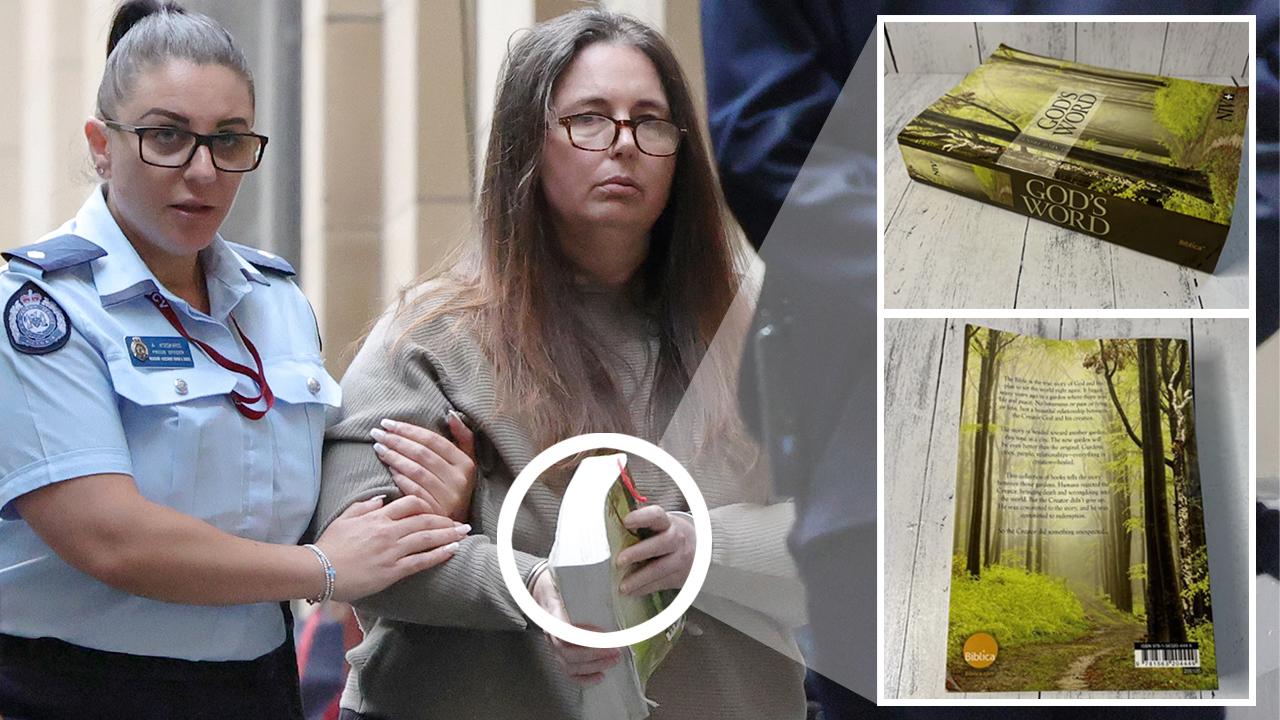Court of Appeal president Chris Maxwell says mandatory minimum sentences are ‘wrong in principle’
The state’s former top prosecutor has deemed a retiring judge’s parting pot-shot at parliament over mandatory sentencing as arrogant and ignorant.
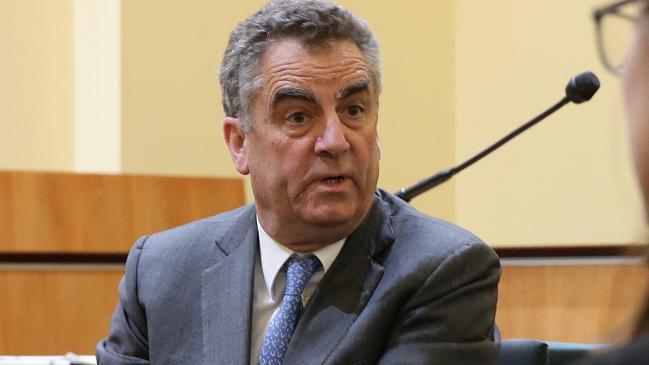
Police & Courts
Don't miss out on the headlines from Police & Courts. Followed categories will be added to My News.
A retiring judge’s parting pot-shot at parliament over its tough mandatory sentencing regime was arrogant and ignorant, the state’s former top prosecutor says.
Gavin Silbert SC weighed in on the debate on Friday, a day after Court of Appeal president Chris Maxwell took aim at the government, saying the minimum mandatory regimes were leaving judge’s hands tied to jail people who didn’t deserve it.
In a joint judgment on the eve of his retirement on Friday, Justice Maxwell and fellow judge Terry Forrest, said the government’s policies were “wrong in principle” and had left judicial officers “instruments of injustice”.
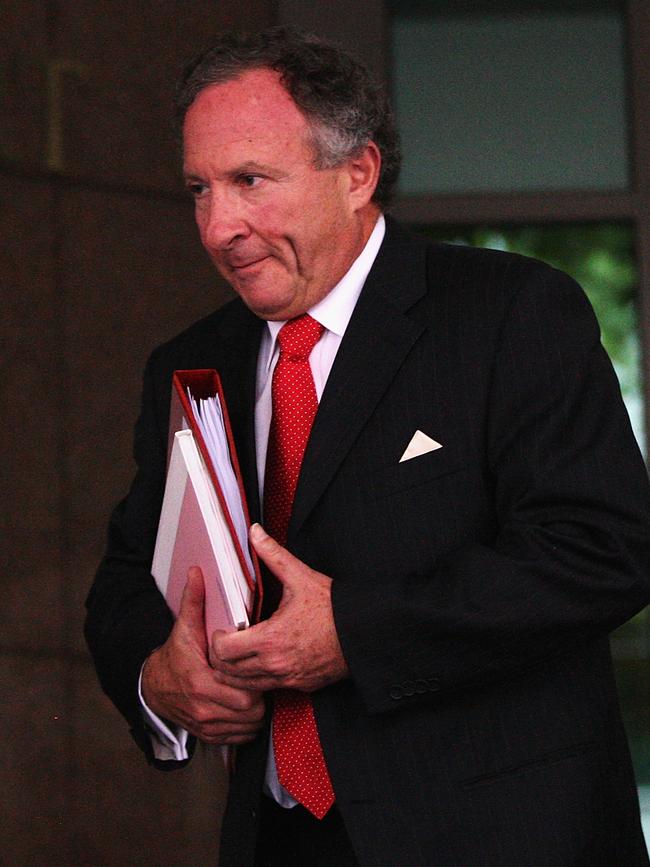
Mr Silbert told the Saturday Herald Sun that the judges’ criticism “betrays elements of arrogance and ignorance on the part of the Court of Appeal”.
“Parliament is supreme in our system of democracy. It is Parliament’s duty to make laws and the function of the courts to interpret them,” Mr Silbert said.
“It is no part of the court’s function to enter into the Parliament’s law making function.”
Mr Silbert said “bad laws” should be corrected by “Parliament and by the citizenry at elections”.
“The comments of the court... betray a misunderstanding of the proper function of the courts,” he said.
It’s not the first time Mr Silbert has been critical of the Court of Appeal, in particular during Justice Maxwell’s reign as it’s president.
In 2020, he published a damning study in the Australian Law Journal highlighting how under Justice Maxwell, the Court of Appeal had lost its “near perfect record” and “outstanding reputation” with 18 criminal judgments overruled by the High Court.
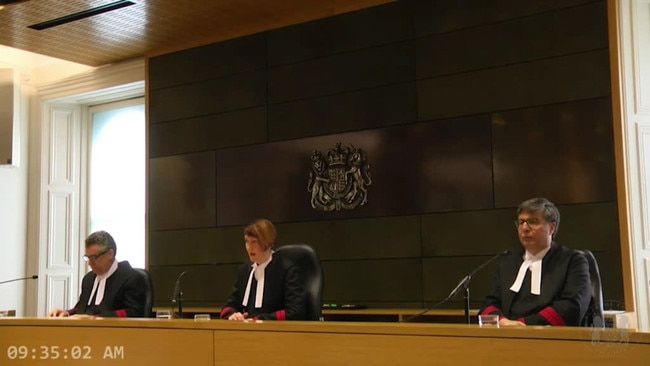
In the report, titled The First 24 Years of the Victorian Court of Appeal in Crime, he found in Justice Maxwell’s first 14 years as president, 16 decisions had been reversed by the High Court.
Only two were reversed under the previous president, Justice John Winneke.
The Samuel Griffith Society executive director Xavier Boffa said the legal community had been surprised by the judges’ remarks.
“Not only is it unusual for judges to weigh in on what are clearly political questions, it’s strange that they would do so when their own decisions have been described as ‘unorthodox’ and ‘wrong in principle’ by the High Court,” Mr Boffa said.
“The separation of powers means that it’s Parliament’s job to make laws, while the focus and responsibility of judges is ensuring that the law is applied correctly in real cases.”
Government hits back at judge’s smackdown
The Andrews government returned fire after Court of Appeal president Chris Maxwell’s smackdown, saying the sentences served are an “important role in deterring serious crime”.
“Statutory minimum sentences only apply for the most serious offences, and only for people aged 18 years and older,” a government spokeswoman said.
“We are focused on youth diversion for eligible young offenders, and over the past five years in Victoria we have reduced our custodial sentenced detention rate for children and young people by 75 per cent.”
Court of Appeal president Chris Maxwell – who left that post on July 15 after 17 years – fired an extraordinary salvo at the Andrews government’s tough-on-crime policies when delivering an appeal judgment against a convicted carjacker a day earlier.
He – along with fellow appeal judge Terry Forrest – claimed minimum mandatory terms introduced by the government in the past decade, and supported by the opposition, had left judicial officers as “instruments of injustice”.
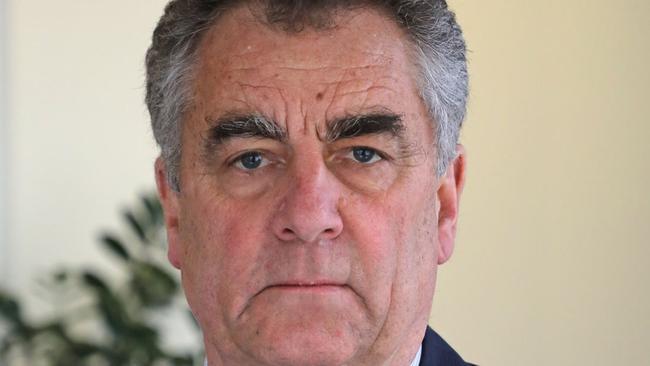
The mandatory minimum sentences “reveals a wholly unjustified mistrust of those on whom the sentencing discretion is conferred,”, Justice Maxwell and his colleague said.
“This blunt, oppressive sentencing regimen is contrary to the public interest and incompatible with modern sentencing jurisprudence” the judgment read.
“They require judges to be instruments of injustice: to inflict more severe punishment than a proper application of sentencing principle could justify, to imprison when imprisonment is not warranted and may well be harmful, and to treat as identical offenders whose circumstances and culpability may be very different.
“A preoccupation with being, and being seen to be, punitive has obscured a proper appreciation of the public interest.”
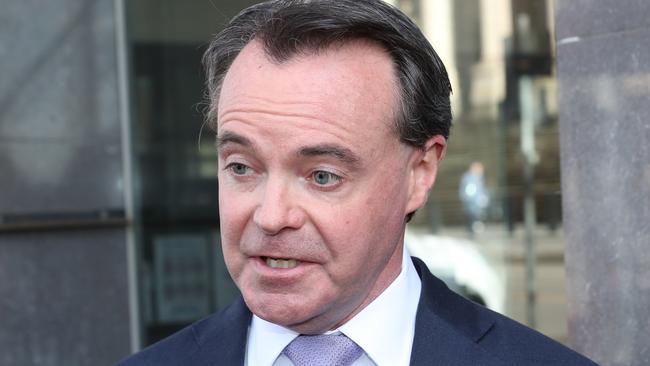
The Law Institute of Victoria threw its support behind the judges’ remarks, saying mandatory sentencing schemes “often lead to unjust outcomes”.
“This one size fits all approach to sentencing can see offenders with unequal capability and circumstances sentenced to the same minimum sentences of imprisonment, with little or no opportunity for rehabilitation,” the institute said in a statement.
“Judicial discretion is required to ensure the fairest outcomes for all involved.
“It is particularly vital for young offenders that sentencing is rehabilitative and reduces the risk of re-offending.”
LIV has long opposed mandatory sentencing, and in its submission to the inquiry into Victoria’s criminal justice system last year, recommended its effectiveness be reviewed.
It said the scheme should be repealed to allow for “greater judicial discretion and greater consideration of the individual circumstances of the offender”.
Michael O’Brien said: “It is disappointing for an outgoing judge to attack MPs who are strengthening sentencing laws to keep Victorians safe.
“Parliament acted on minimum sentencing because too many judges would not.”
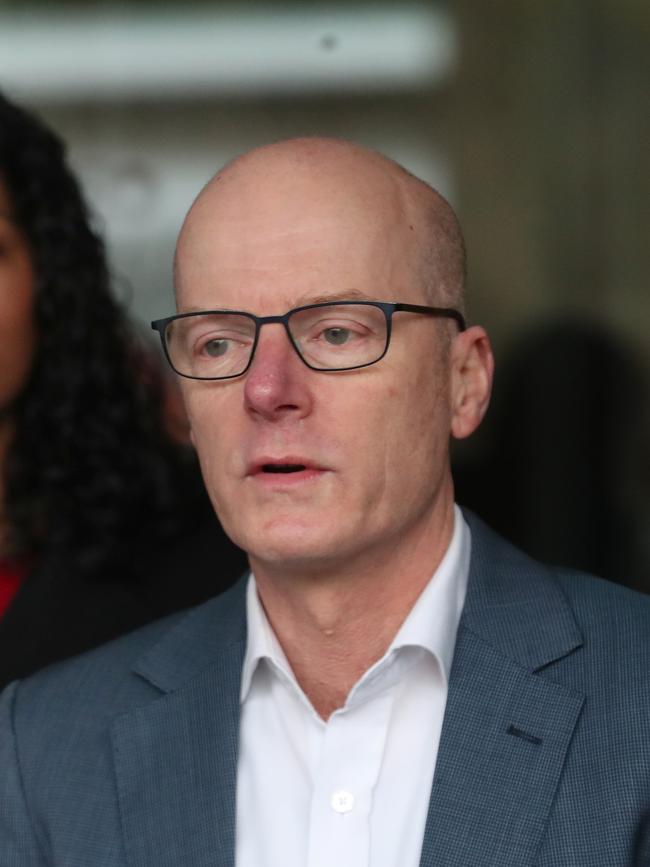
But Greens MP Tim Read, who is the party’s justice spokesman, said there was “no evidence” to support mandatory sentences.
Dr Read said the laws don’t reduce crime but do drive an “over-imprisonment” of First Nations people, with Aboriginal Victorians jailed at about 15 times the rate of the state population.
“The Greens will abolish all mandatory sentencing, including mandatory minimums,” he said.
“Since the Liberals introduced mandatory minimum sentences in 2013, Libs and Labor have supported broadening them.
“No evidence supports mandatory sentences, yet MPs continue to claim they will reduce crime. They don’t, but they do drive over-imprisonment of First Nations people.
“Smarter sentencing will lower offending.”
Derryn Hinch’s Justice Party slammed the discussion and said the rights of convicted offenders needed to be balanced alongside the rights of victims of crime and their families.
In a statement, party leader Stuart Grimley said the courts “constantly demonstrate their disregard for community standards”.
“Derryn Hinch’s Justice Party works with and advocates for victims of crime and their families every day,” he said.
“Speaking generally and not to this specific Court of Appeal decision, we fight for stronger sentencing because our courts constantly demonstrate their disregard for community standards in their decisions.”




